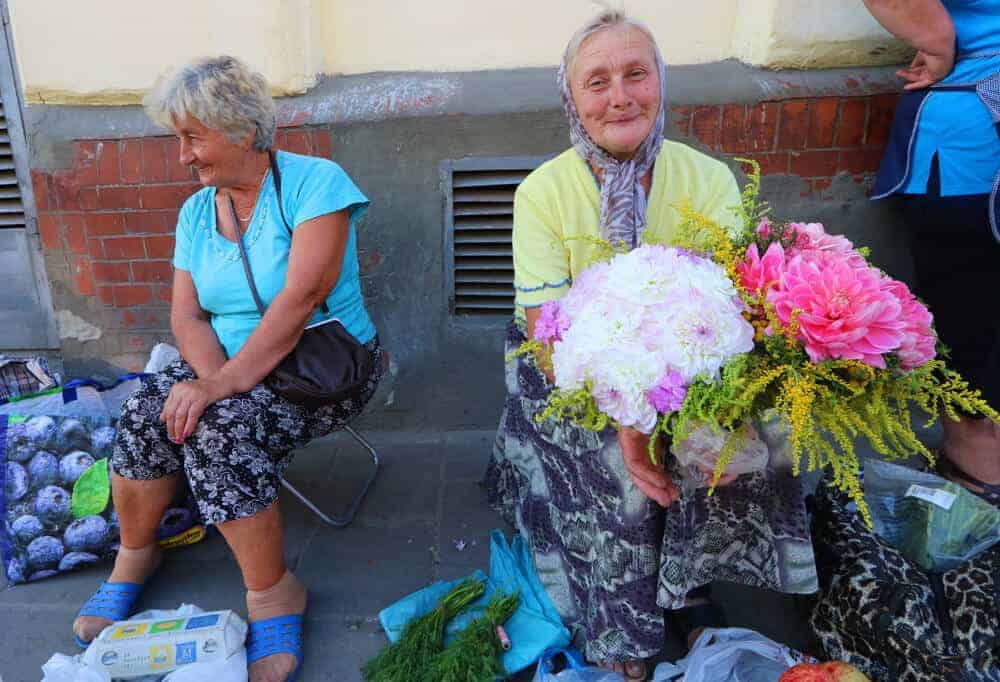
People are always saying that Eastern Europeans are unfriendly. We met a South African couple recently in Croatia who mentioned that Croatians are “nasty”, a Nicaraguan couple in Kyiv who commented that Ukrainians are “not very charming”, an American couple in Sofia that complained that Bulgarians are “arrogant”. I see it all the time on Trip Advisor, people complaining that service in such-and-such restaurant is “rude and unfriendly”. I’ve even had well-travelled family members (who’ve travelled mostly in Western Europe) tell me the same about Hungarians and Czechs.
Having spent a lot of time in Central and Eastern Europe – and coming from North America – I can see why people have that perception of Eastern Europeans*. They often don’t smile, are abrupt, and service is “bare bones”.
* I’m of course generalizing: “Central” and Eastern Europe cover many countries and there are differences among each. But, generally speaking, that perception of East Europeans is valid throughout.
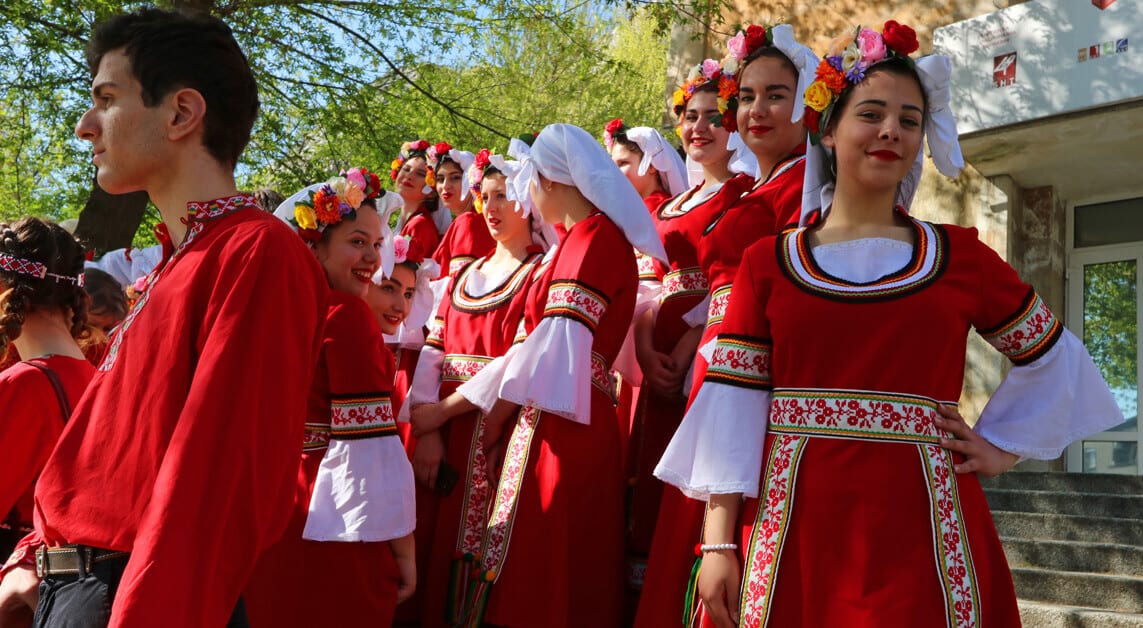
So is it true? Are Eastern Europeans unfriendly?
When we left Canada 5 years ago we settled in the suburbs of Prague (District 8) for 3 months. It was a working class neighbourhood, nobody spoke English, and we felt like fish out of water. I remember the first time going to the grocery store and having an old lady look at me with hate in her eyes for having inadvertently gotten between her and the vegetable stand. There was a cashier, the only man, who barked at me for some reason I never understood (we would call him the “Checkout Nazi”). Everybody was glum and nasty.
We had an apartment on the ground floor with large windows. One of our neighbors, an old lady, would walk her dog in the grass outside our window every day. One day the window was open and Lissette looked out and waved hello at the lady. The lady literally turned away. The dog barked. I felt uncomfortable just watching this interaction…
But a month into our stay things changed. The cashiers at the store recognized us and would be friendlier. We even had a few who would try their English out with us. One day we ran into our neighbour and her dog in the hallway and Lissette held the door open for her. After that day the old woman would bark out “Dobry Den!” so loud we almost jumped out of our shoes. She would talk to Lissette in Czech and even smile. When we left a couple of months later we gave her a box of dog biscuits. It brought tears to her eyes.
More here on Czechs and the friendliness factor
In the last 5 years we’ve spent most of our time in Eastern Europe. It’s become one of our favorite regions of the world. Knowing what we know now, and looking back, here are some things we’ve concluded about the “unfriendliness” of Eastern Europeans.
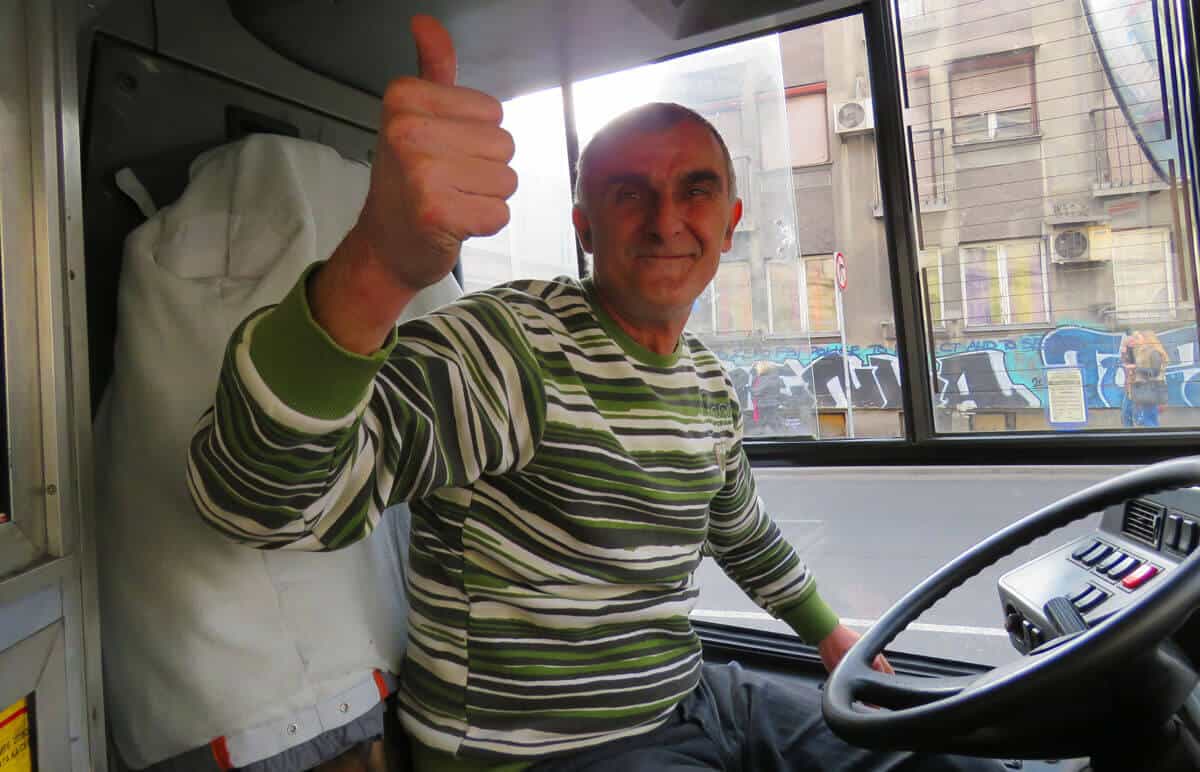
They’re more Formal
Formality is something we noticed early on. It’s not just in Eastern Europe, it applies to all of Europe. When meeting someone you should always say the equivalent of “Hello” before moving on to the subject of your business. I’ve had my ass cut a few times (in both Prague and Paris) for not doing so. In North America just a smile will do, but in Europe it’s expected otherwise it’ll be you that comes across as rude.
Conversely, never mind the big American grin or chit chat. They don’t have time for that and you just come across as “fake”.
It just comes down to different rules of etiquette and socialization.
The level of formality is something that has surprised us. If you’re waiting at the doctor’s office with 10 other people, don’t be surprised if someone coming in does a universal “Hello” in the local language. It also happens in the locker room at the gym and I’ve even had people come in and shake my hand in greeting while I’m sitting there wearing nothing but my underwear.
This would never happen in North America.
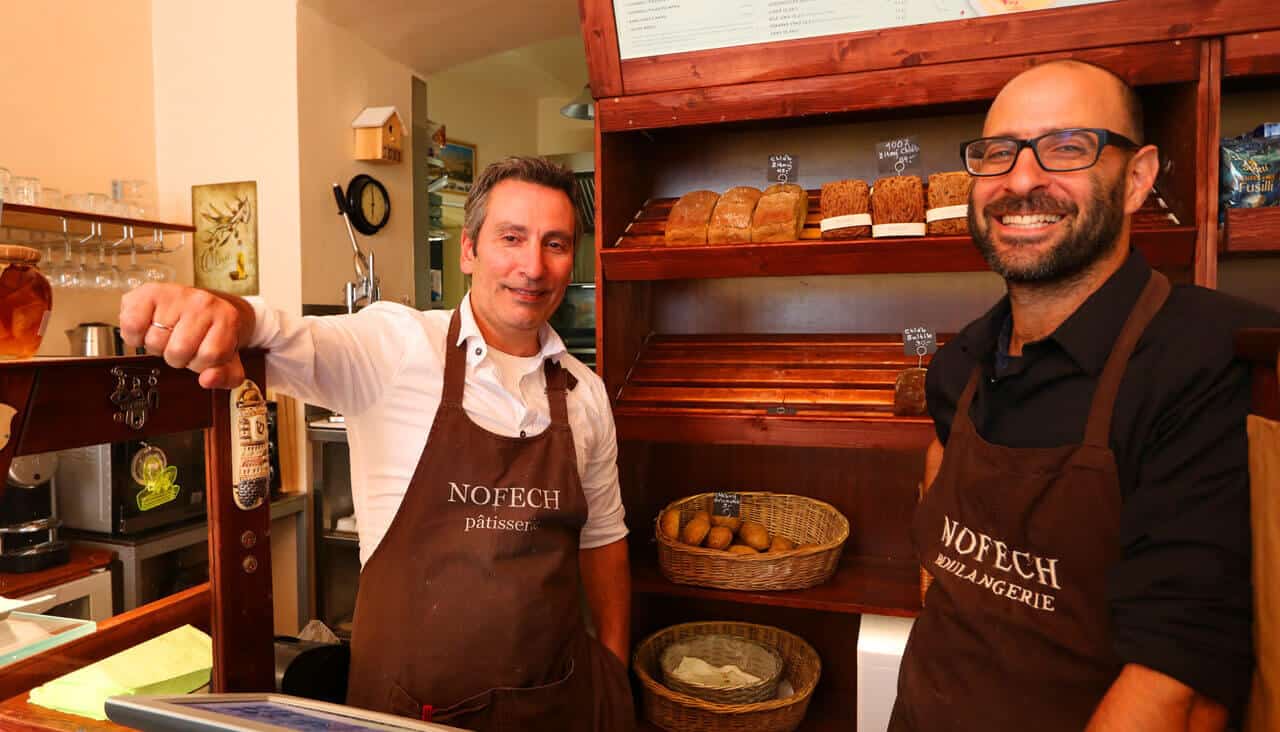
They’re more Reserved
I mentioned the North American “chit chat” or small talk that we often break into. We do it to break the ice or fill dead air. Europeans and especially Eastern Europeans generally don’t do that, the exception being younger people raised on American movies who feel more comfortable in English. You’ll usually find older people stiffer.
Much of all this also has to do with historical background. An older person in Central and Eastern Europe was raised under communism where the goal was to be as inconspicuous as possible. Having someone asking questions and being talkative was deemed suspicious. In North America we had (and still have) a mercantile economy and the small talk was a social lubricant – a polite ritual – required when meeting others.
So people have to keep these differences in mind when deciphering how the older generation of Eastern Europeans act.
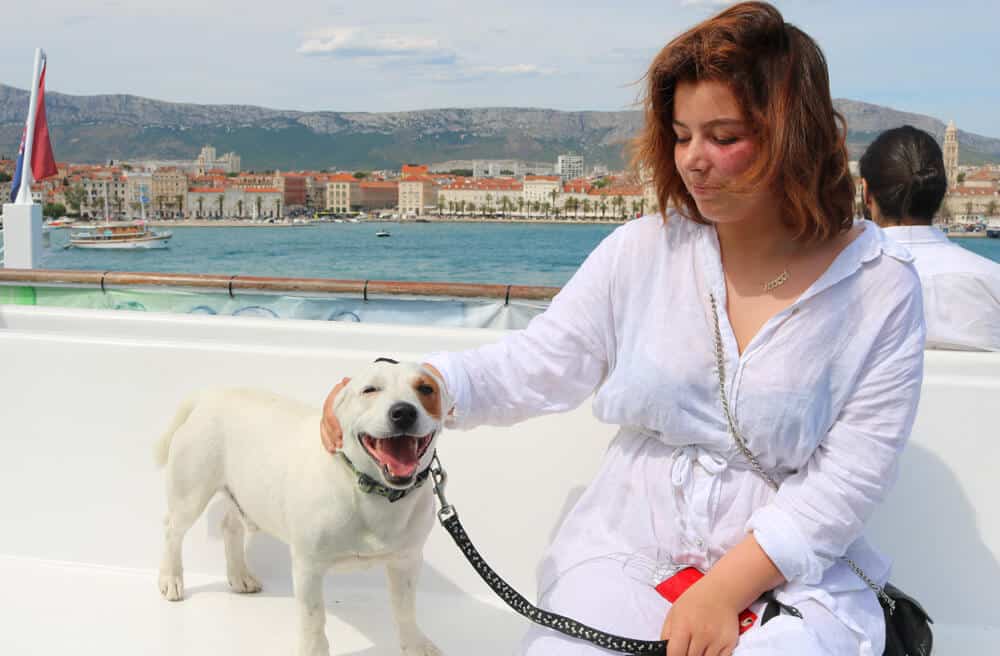
Tipping and Service
I mention being reprimanded in Prague. We had just sat down at a café. The waiter came. I looked up, smiled at him, and said “could we please have two cappuccinos”. He had looked at me and very pointedly said “Here we say Dobry Den when greeting people”. I could clearly see him thinking however “another rude North American…”.
In North America being reprimanded by the waiter would never happen. The customer is king and any complaint could very potentially get the waiter fired.
In Europe you can sometimes feel that they’re doing you a favour when they come to your table. And you better be ready with your order when they do because they may decide not to come back for another 15 minutes if you haven’t made up your mind. The customer is NOT king and the waiter doesn’t really care that much if you get great service or not – the biggest reason being that in many places a) the tip is already included in the bill, b) Europeans generally tip very little (compared to North Americans).
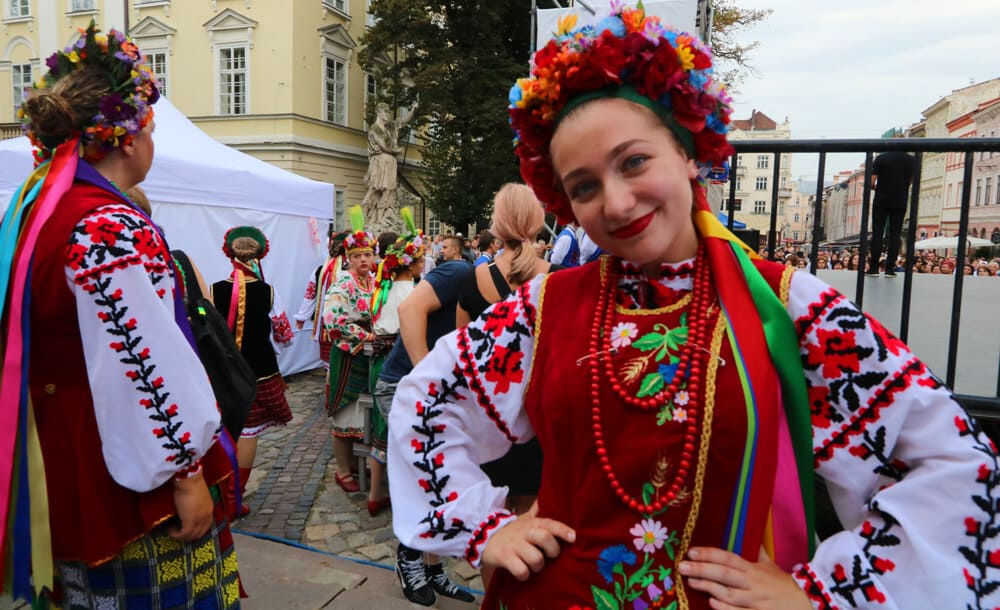
Where you WILL find the Nastiness
I’d love to tell you that it’s ALL about different rules of etiquette and tipping. But that’s not the total truth. Service CAN be downright nasty at times. But it’s rare and the worst instances for us have been in the Czech Republic and Romania and in most cases it was in government run stuff: a museum, tourist office, or on public transport. In all these cases there’s nothing to be gained by friendly service. I guess it makes sense that government run institutions remain a backwater of Communist-era ideology.
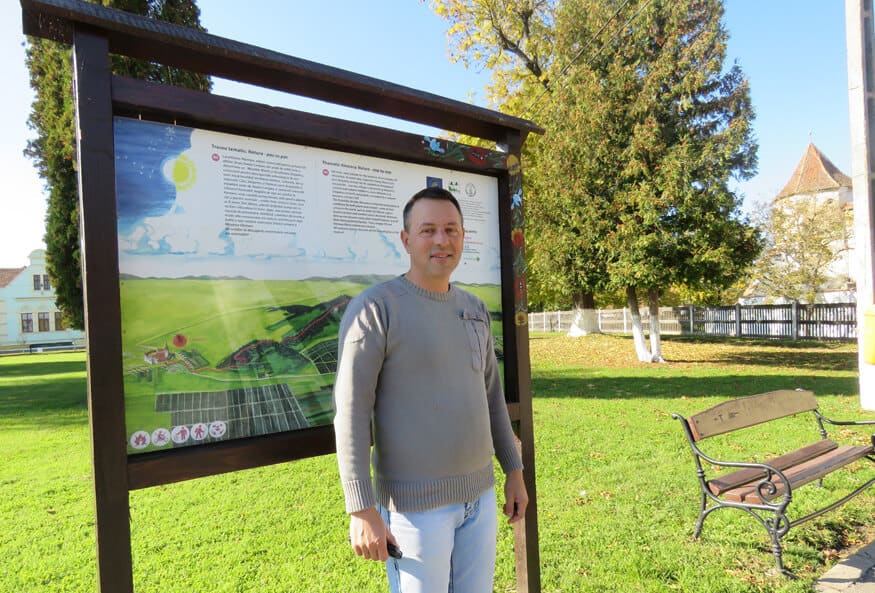
How to deal with “unfriendly service”…and why it might actually be a good thing
But what most travellers coming to Eastern Europe complain about, and you’ll see that on all those Trip Advisor reviews, is gruff service perceived as unfriendliness. It usually happens in restaurants. The problem is that it’s not what most people outside Eastern Europe are used to.
We’ve realized that it’s not personal and it doesn’t bother us in the slightest anymore. And you might think this crazy: but it’s actually a relief. You don’t have to waste time with niceties and a fake smile, you just say hello and give them your order. And at the end of your meal when your waiter comes with the bill you don’t have to figure out what you’re going to say when they ask you “How did you enjoy your meal?”. Because in Eastern Europe they won’t ask you that. They figure if you have an issue with your meal you’re going to tell them while you’re eating it.
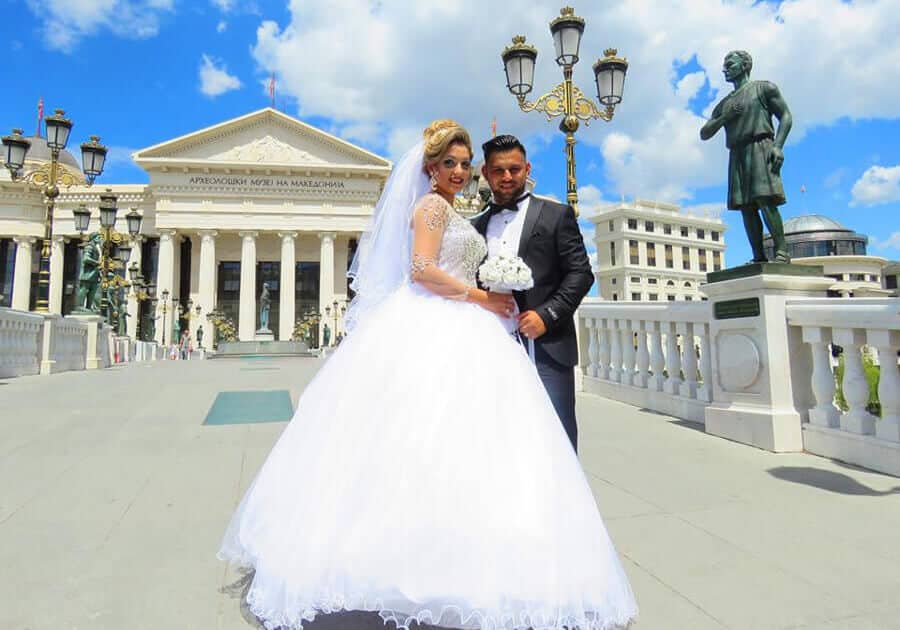
As I say up top, Eastern Europe is one of our favorite regions of the world. People may at first appear gruff and dour, but dig a bit deeper and you’ll find them as friendly as anywhere else in the world. And when they’re friendly they’re being genuine. We’ve had some amazing personal experiences. We’ve been invited to people’s homes, out for coffee, and have had tons of random conversations with locals. Don’t let perceived unfriendliness stop you from coming to this part of the world.
Related: Our Best and Worst “Slow Travel” Bases over 5 years of Full-time Travel
Related: What are Croatians like? The Good and the Bad
Related: What are Czechs like? A Review of the “Xenophobe’s guide to the Czechs”

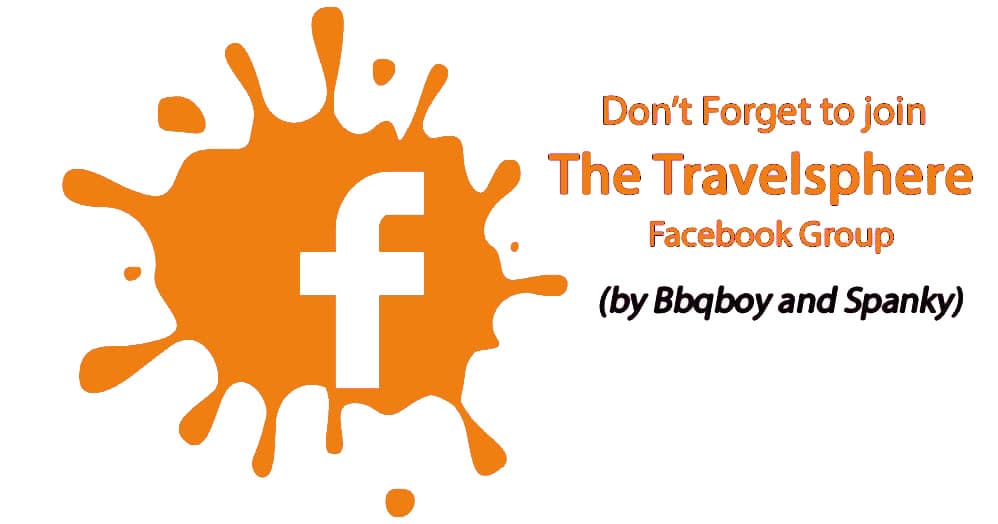
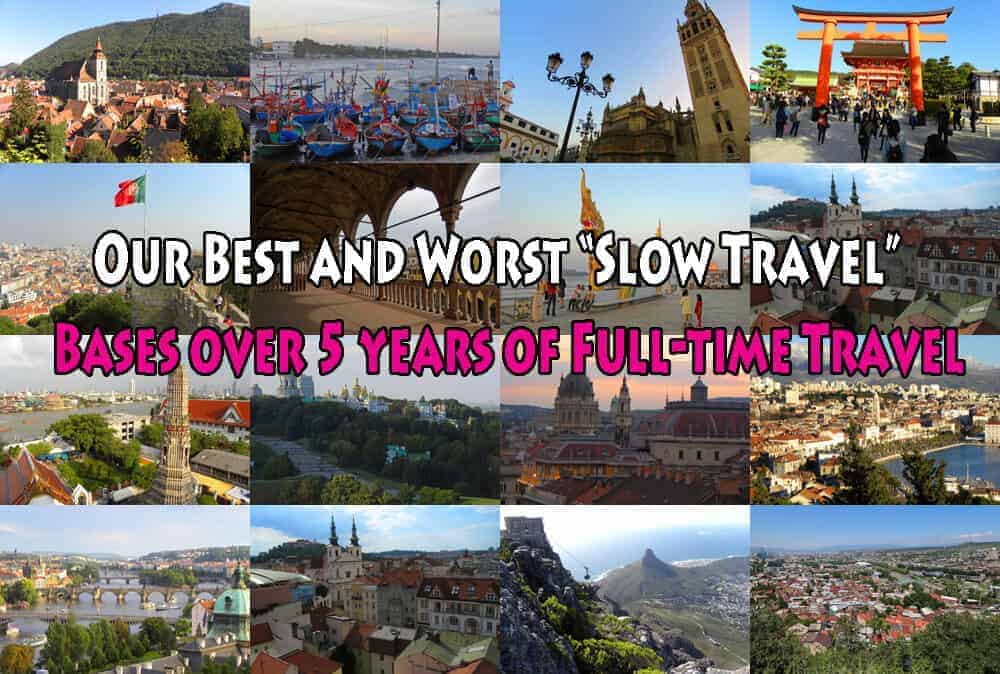
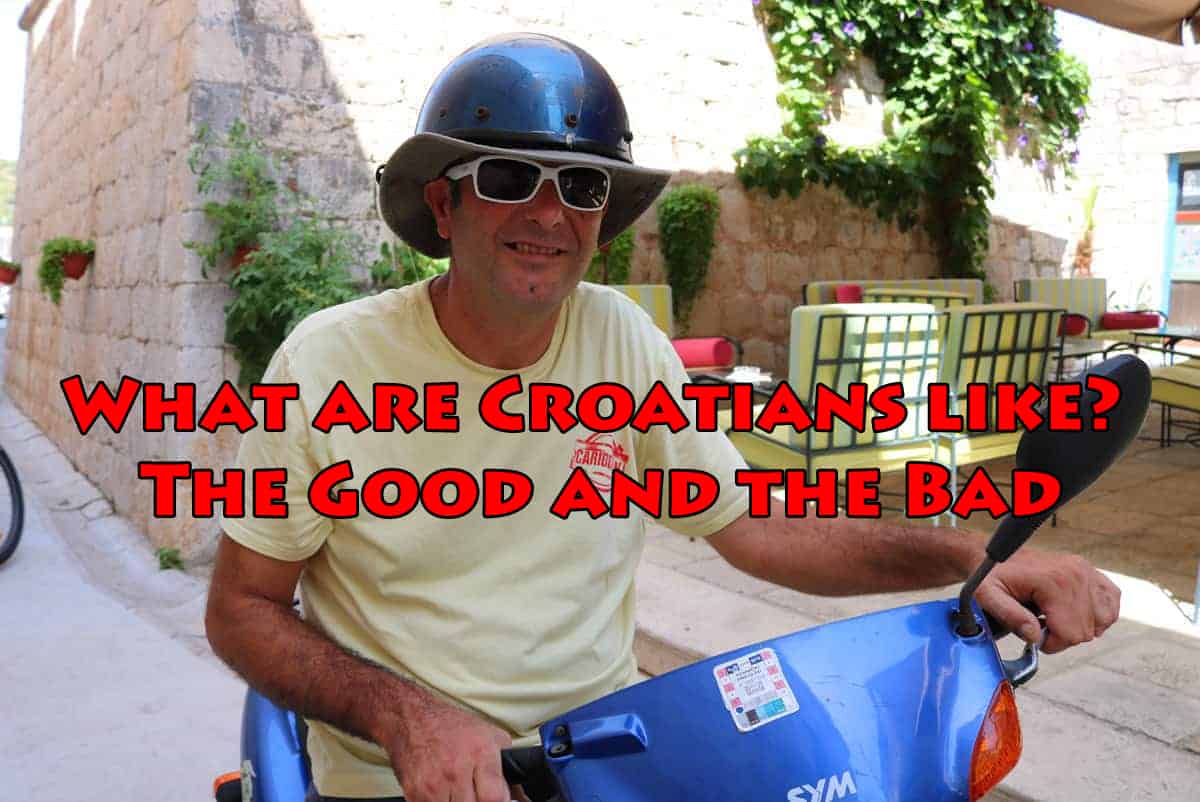

Much truth in what you wrote, and I’d like to add a couple of things:
1. Service in Germany (to include West Germany) is much more pragmatic and can be more unfriendly than in the finer establishments of Eastern Europe
2. In finer establishments in metropolitan areas of Eastern Europe, you can find warm and outstanding service – from Prague to Kiev and beyond…
I wish I had read this before spending the last week in Prague. I’m from Texas and traveling for work, and the last seven days have left me depressed and starved for kind human interaction. I found it interesting the locals played only American music in the restaurants, sold NYC and California shirts in so many stores, wore University of Texas and Harvard hoodies, but wanted nothing to do with an American looking for 30 seconds of comradery in a foreign land.
This post is reassuring, and I’m glad it found it from my Google search. It is clear I have some work to do if I am going to inspire better ways of working with my Hungarian and Czech colleagues.
Thank you for the comment Megan. I think you have to give people here more time, just a whole different mentality.
The most annoying thing whenever I visited Prague was the bread and water situation. Every time I went out to eat, immediately a basket of bread and water was placed on the table even though I hadn’t asked for it and sometimes before I had ordered anything.
It turns out this basket of bread was added to my bill, along with the water, even though I hadn’t asked for it and it wasn’t cheap.
I learned quickly that as soon as someone approaches your table, you have to clearly say that you don’t want bread or water.
Is it still like this ? I’m talking 2006 here.
My other issue with Prague was the airport taxi girls.
Upon arrival in Prague and as you exit the airport, I was always approached by very attractive, smartly dressed young girls enquiring if I needed a taxi.
The girl would then escort me to a taxi, offer to help with luggage, open and close my door, have a quick word with the driver about where I was going and off we’d go.
Turns out I was paying for this service,which was totally avoidable by just saying no thank you and walking to the taxi line by myself.
I’d always thought they worked for the taxi companies but basically any girl can decide to do this and there’s an unspoken agreement between them and the taxi drivers.
The drivers have no choice because they know these girls will always get more attention and look more approachable. As soon as someone says yes to them, they decide which taxi gets the customer and the cost to the driver of staying on the right side of these girls, fell on the passenger.
Is that still a thing
Wow. Flown through Prague about 15 times and never had that experience. We did once arrive and saw a couple of very sexily dressed girls picking up a guy at arrivals – but assumed he had arranged this (Just because you can. They have limo pickup with strippers). But otherwise never saw what you are referring to…
what a pleasant forum to read, both what you, the authors write, but also the comments of others. One sees so much superficial bullshit elsewhere in the web, so much overestimation of one’s understanding of things. This forum really stands out. I think, you are all spot on when describing differences between North Americans and Central Europeans. As a German from Hamburg (now living in Uruguay) I have lived in various places, so I have trained myself to say “I am fine, how are you doing?” when asked the same. But I have to shut down my “Inner Germaness” for that. After all, how am I doing, the most profound question of all questions ever asked. And do I really want to know that from the other person?
Very kind, thank you Peer. Profound yes, even I don’t sometimes know the answer to that myself 🙂
I lived in Lithuania for some time, roughly 3 years. I lived in the suburbs of Kaunas, the second biggest city, and the capital Vilnius. It took time but after a few months, I got to know these cold, abrupt, distant people quite well. I honestly think there was a kind, funny, caring person hidden deep inside every person I got to know. Lithuanians will tell you themselves , they have trust issues. They are weary of the intentions of new people and so put up walls immediately. They are naturally mistrusting and sceptical and this is a result of its former communist, Soviet union existence. They were raised to be weary and suspicious of people who might be trying to rip them off or steal from them or cause trouble for them. They were always on edge, worried or concerned about what was round to corner and this they bred into their children and children’s children. As one Lithuanian once told me ” I can’t afford to be nice”.
Once you gain their trust however, they are amongst the most hospitable, kind and friendly people I have ever met
Great comment Sean, thank you. Still haven’t been to Lithuania but now I’ll know what to expect.
It predates Communism.
Yes, they are. I’m latino and I`ve lived in my life in six countries, two in America (I speak about the continent and not USA) and four countries in Europe. And people from some countries in east europe are people that seem grew up in a barn. Acids, rude, without good manners, arrogants and generally stupid. Exceptions: More and less Poland and Hungary; Croatia, Serbia, Montenegro, Macedonia, Slovenia are very nice people. The worst: Russia, Lithuanian, Ukraine, Czech Republic, Bulgary, Romania.
Interesting comment. We’ve had good experiences in all the countries you mention – except Poland. Romania wasn’t great either. Aside from that nothing but welcoming people.
I have been yelled/treated rudely by store/restaurant staff more often in ex Soviet Union countries than anywhere else in the world. I also speak a bit of the local language and that has not improved my results.
I attribute it to the state-run mentality that has not completely dissipated.
I find these interactions to be part of the charm to visiting that part of the world. I also feel it happens less, as the younger generation takes over.
And, I believe these interactions are mostly confined to the store/restaurant, meaning when you meet the locals outside of this environment I find them more friendly.
Funny – I was never aware of these prejudices about Eastern and Central European people. But I can see that things might be irritating if you have an American cultural background. And I think you are absolutely right about the language factor – if you have fewer words to express yourself you sometimes sound harsh.
I think Eastern Europeans pretty much on the opposite end of the scale to Americans in the way they express themselves. Just different and I don’t think one is worse than the other…but if you don’t know you can misinterpret a lot of things.
Thanks for commenting Natascha 🙂
great post! Once you get to know people in Eastern Europe, it’s a whole different ball game! And I rather like service from people who dont give a damn, I hate to say it, but it’s rather amusing. And serving people I have to admit is not one of the world’s greatest jobs.
Great article. And the comments as well.
Our native Ukrainian teacher back in Canada prepared us very well for eastern European hospitality.
We’ve been here in Kyiv long enough now that we’re near regulars at many places. I enjoy stumbling over words at the grocery store, meat counter and cash where vendors are delighted with my effort instead of just gruff.
And I can ask Як справи (what’s up) and get a nice long monologue back.
I’m impressed that you’ve taken steps to learn Ukrainian Colleen. A very tough language to learn. I kind of envy you for having the opportunity to live in Ukraine for an extended period. I’d love to see winter in Kyiv, have only seen photos but seems stunning.
You right on the dot and agree with you like all other comments, especially since I am from that part of the world. I encountered all the same in Czech republic, Hungary, Poland, Romania, Georgia and others. Not to be critical, after 47 years in the US I still can’t get used to a stranger or even an acquaintance asking me “how are you?” ……and never waiting for an answer. It sums it up.
Very true, thank you Sara.
I had a comment on this post on Facebook and the person (originally from Eastern Europe) mentioned that in her 20+ years in the US she’s rarely been invited to people’s homes whereas it’s a normal thing in Eastern Europe.
Interesting comments.
Could not agree more. I love that part of the world and will be back for a few weeks in October. One questions – I understand non EU citizens (I am from the US) can stay in Europe for 90 days without a visa and then we need to return home for 180 days. This applies to the countries in the Schengen Area which includes 26 countries. What advice do you have to stay in Europe longer than 90 days? We are hoping to start traveling for 3-6 months at a time, but I do not know how to do it with this rule in place. For example, how can you stay in the Czech Republic for longer than 90 days? Are you using a different visa? Any advice or tips are appreciated. Thanks and I love your posts!
Thank you Lori!
The “Schengen shuffle” is something we’ve been doing for 5 years now. You don’t have to go home – you just have to get out of the Schengen zone which means going east if you want to stay within Europe (exceptions being the UK). It’s how we’ve ended up staying a lot of time in places like Croatia, Ukraine, Romania, Georgia etc…they’re all out of Schengen.
So basically you just have to plan ahead, knowing that for every 3 months in the Schengen zone you’ll have to spend 3 months out of it before going back in. Which means much of Eastern Europe, Africa, Asia…anywhere out of the Schengen zone.
More technically, the rule is 90 days out of every 180 days. So you can bounce in and out of the Schengen zone, just as you can in most other (ie. non-Schengen) European countries. For example, in Croatia you’re allowed 90 days within a 180 period…but you can do 60 days, go across to Bosnia&Herzegovina or Montenegro for a month or two, then come back to Croatia for a month…as long as (like Schengen) you’re not there more than 90 days in a 180 day period.
It means good record keeping and planning.
We’ve never looked at staying in any country over 90 days except Croatia where we obtained a 1 year temporary residence. It’s a lot of trouble and I wouldn’t bother.
The reason we’ve ended up spending a lot of time in Eastern Europe is easy: 1) Most of the countries are outside Schengen, 2) they’re much more affordable than Western Europe. We actually think Eastern Europe is more authentic and safer than Western Europe. That’s just our opinion.
If you ever have other questions feel free to write me privately 🙂
True Frank. I noticed that a short (very few words after saying hello) works wonders. For instance, I’m currently in a small town filled with people who work locally and tourists are for “that place”down the road. I said hello, mentioned in about 5 words the massive thunderstorm that woke the whole place up at 3am, said I lived in London and we get rain, rain, rain. He repeated the rain bit and laughed. 4 hours later I’m out for a stroll and he waved to me from across the street.
Learning hello and a few basic words really helps. As you say taking notice of how the locals interact, even if you don’t know the lingo, helps when it’s your turn.
There are times, though, it’s best to keep your mouth shut and just get to where you are going to.
Great comment Ted. Sometimes travellers try too hard. It’s about being friendly enough when the situation warrants it but keeping your mouth shut when people just want to get about their day.
Love the way you travel. Are you still in Spain?
Hey Frank,
Yes. I’m in Catalonia at the moment, a small town inland from the Costa Brava visiting some friends and plan to go back to London within the next week.
Nice. Costa Brava – first trip without parents (with a friend) when I was 18. Just remember how super cheap Spain was at the time for Canadians.
Great article! I agree 110 % with you. I have got to a point in my life where I even sometimes prefer the eastern European style of communication: I really like the fact that when they are friendly with me it’s genuine: no fake smiles, no “have a nice day”, no “darling” in the supermarket. .. but it’s authentic.
Yesterday I was thinking about it when I was out dealing with people in Yerevan (I don’t know if it’s eastern Europe, for me it’s Asia… but is a complicated issue). I guess the main issue is that people coming from Western Europe and America they are used to another type of communication, so I understand that it’s hard.
Another interesting thing about eastern Europeans is that they will tell you their opinion even if it’s controversial. In Western Europe people tend to calculate more each word, because they don’t want to sound controversial.
After meeting many people… I think the people who are more “eastern Europe ” in their style of communication are the Russians. For example, a couple of days ago a russian girl in Yerevan told me that spanish people in Russia have the reputation of being lazy… and actually she was being friendly and sweet with me, but she didn’t hide the fact even if I could get offended. So definitely they have a different style of communication.
I like your Russian girl example. Yes, they can be blunt but part of that is the language factor I think that makes things come out a little harsher without meaning it.
How are you liking Yerevan? Have you been to Tbilisi? Wondering how you’d compare the two and which you prefer…
similar to why I enjoy living in New England (as a native Californian). im quiet, and don’t enjoy chit chat from people I don’t know. unsurprisingly, I’ve also always enjoyed my time in eastern Europe! 🙂
Great to hear Gwen! Thanks for taking the time to comment.